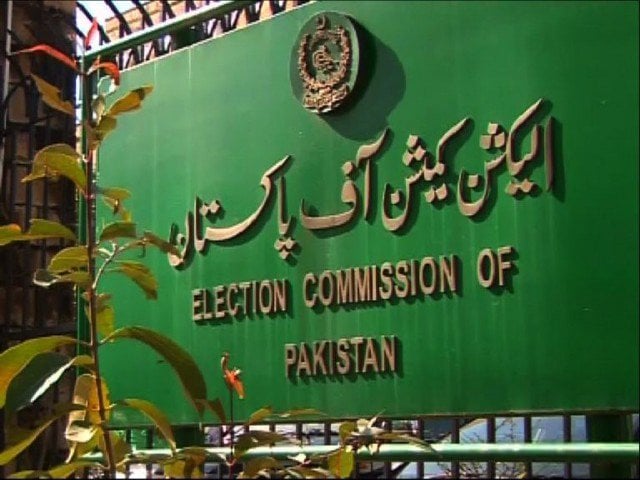
The ruling coalition lost a big chunk of the reserved seats in parliament after the Election Commission of Pakistan (ECP) on Monday suspended the membership of 77 lawmakers who were elected on reserved seats previously denied to the Sunni Ittehad Council (SIC) in compliance with the Supreme Court’s order.
The allocation of reserved seats in the legislature has become a contentious issue as the SIC, which did not officially contest the elections, claimed reserved seats based on the support of PTI-backed independents.
Acting on a appeal filed by the SIC, the Supreme Court had already suspended a previous ruling by the Peshawar High Court (PHC).
The ECP’s de-notification and the apex court’s restraining order mean the composition of both the National and provincial assemblies may require to be reworked.
The lawmakers, whose membership was suspended, included 44 from the PML-N, 15 from the PPP, 13 from Jamiat Ulama-e-Islam-Fazl (JUI-F), and one each from MQM-P, Istehkam-e-Pakistan Party, Awami National Party, Pakistan Muslim League and Pakistan Tehreek-e-Insaf Parliamentarians.
In the K-P Assembly, 21 lawmakers on reserved seats for women and four for minorities were de-notified. Similarly, in the Punjab Assembly, 24 women lawmakers and three minority MPAs got their membership suspended.
In the Sindh Assembly, the membership of two female and a male member on minority seat was revoked till further orders.
According to a notification, in the National Assembly, 19 women members were suspended, comprising 11 from Punjab and eight from Khyber-Pakhtunkhwa. This included the suspension of four women’s seats belonging to the PML-N, two each from the JUI-f and the PPP.
Furthermore, the membership of three minority members in the National Assembly was also suspended.
The ECP withheld the notifications of the 23 reserved seats -- 20 for women and three for minorities. Later, on March 5, the commission distributed the seats to ruling parties, allocating 15 seats reserved for women to the PML-N, four to the PPP and one to the JUI-F. It allocated one seat each reserved for the minorities to PML-N, PPP and MQM-P.
Consequently, the PML-N became the largest party in the National Assembly with 123 seats, whereas the tallies of the PPP and the JUI-F rose to 73 and 11, respectively. The ECP also issued notifications on the reserved seats for women and minorities in Punjab and K-P assemblies on the same day.
The PML-N had initially won a total of 75 general seats and was joined by nine independents. With the allocation of 19 reserved seats for women and four reserved seats for minorities, the number reached 107. However, after getting the additional seats following the ECP’s March 5 notifications, the PML-N’s tally jumped to 123.
The reserved seats are allocated in the National Assembly under Article 51 of the Constitution and in provinces under Article 106. The relevant law is Section 104 of the Elections Act.
Clause 6(d) of Article 51 says: “Members to the seats reserved for women which are allocated to a Province under Clause 3 shall be elected in accordance with law through proportional representation system of political parties’ lists of candidates on the basis of total number of general seats secured by each political party from the province concerned in the National Assembly.”
Clause 3(c) of Article 106 says that the members who fill seats reserved for women and non-Muslims allocated to a province under Clause 1 “shall be elected in accordance with law through a proportional representation system of political parties’ lists of candidates on the basis of the total number of general seats secured by each political party in the provincial assembly”.
Both the constitutional provisions explain that members to the reserved seats will be elected “in accordance with the law”.
The relevant law, i.e., Section 104 of the Elections Act, says: “For the purpose of election to seats reserved for women and non-Muslims in an assembly, political parties contesting election for such seats shall, within the period fixed by the Commission for submission of nomination papers, file separate lists of their candidates in order of priority for seats reserved for women and non-Muslims with the Commission or, as it may direct, with the Provincial Election Commissioner or other authorised officer of the Commission, who shall forthwith cause such lists to be published for information of the public.”

-(14)1720679028-0/(image-blakelively-on-Instagram)-(14)1720679028-0-405x300.webp)

1731028448-0/Untitled-design-(37)1731028448-0-165x106.webp)



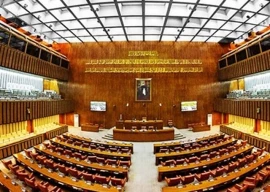


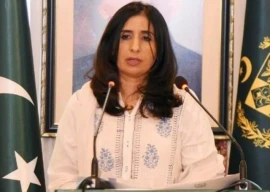
1730379446-0/WhatsApp-Image-2024-10-31-at-17-56-13-(1)1730379446-0-270x192.webp)
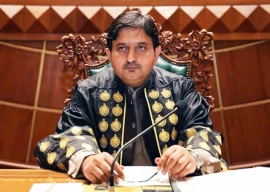
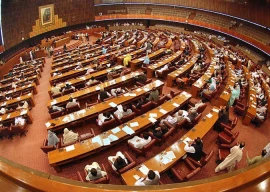







COMMENTS
Comments are moderated and generally will be posted if they are on-topic and not abusive.
For more information, please see our Comments FAQ